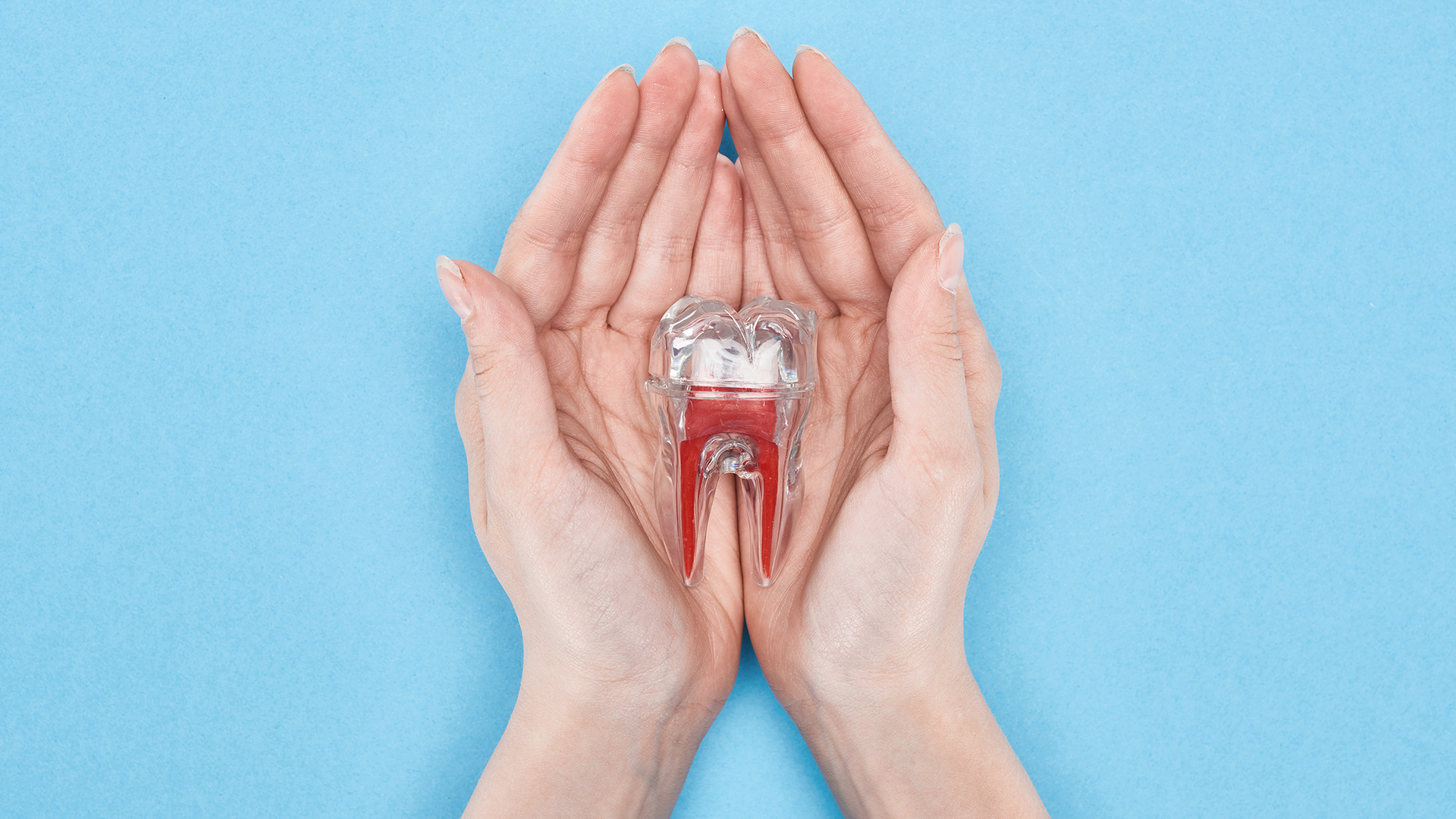
Tooth sensitivity
Have you ever experienced the feeling of being deprived of some simple pleasures, such as drinking a cup of cold water on a very hot day, craving ice cream, or even drinking a cup of hot tea? Unfortunately, you may be unable to obtain these simple things due to your tooth sensitivity.
If you’ve ever had to stop eating a meal for fear of tooth sensitivity, you may suffer from hypersensitivity.
According to the American Academy of Dentistry, 1 in 8 individuals in the United States suffer from this condition. As its name indicates, it refers to any discomfort in one or more teeth when faced with certain stimuli.
This condition is more common in women than in men and usually appears between 20 and 40 years of age. This sensation can mean anything from mild discomfort to severe toothache discomfort.
This tooth sensitivity can result from common problems, such as receding gums, exposed tooth roots, or enamel erosion, which causes the dentin to be exposed to irritating and allergenic factors.
If you have sensitivity or any type of tooth discomfort, it is important to go to your dentist for an evaluation and seek advice to avoid or treat tooth sensitivity.
Symptoms of tooth sensitivity
When we suffer from tooth sensitivity, the pain is always intense but of a very short duration, and we only feel it when we come into contact with the stimulus that causes the pain.
If the pain you feel as a result of contact with an external stimulus is not detected, or is difficult to localize, it may not be due to tooth sensitivity, but rather another type of disease such as tooth decay, a broken tooth, or a deteriorating filling.
Cause of tooth sensitivity
The outer layer of teeth is a hard material called enamel, which protects the dentin layer. When tooth enamel wears away, dentin may be exposed, making the tooth sensitive to external stimuli, such as hot or cold drinks and sweet or acidic food items.
This happens because the dentin contains tubes that microscopically connect to the tooth’s nerve, allowing certain stimuli such as changes in temperature to trigger a painful response from the nerves.
This erosion usually occurs to the enamel and/or dental cement at the neck of the teeth
the most common reasons for tooth sensitivity are:
Brushing too hard can wear down the teeth
Certain actions such as brushing your teeth incorrectly or too vigorously using brushes with very hard bristles or brushing your teeth immediately after eating acidic foods have harmful effects on your teeth and gums.
These procedures are capable of damaging the enamel and causing receding gums, which is one of the main causes of tooth hypersensitivity.
Gum disease
Since one of the main causes of tooth sensitivity is gum recession, any action that aggravates the patient’s gum condition contributes to tooth sensitivity.
teeth grinding
This habit, in which the patient presses or grinds the teeth involuntarily, can cause erosion, which exposes the dentin to the oral environment and causes sensitivity to cold, heat, or the consumption of sugars or acids.
Dental procedures
There are procedures performed in the office that can lead to temporary dentin sensitivity, such as bleaching, dental cleanings, and deep restorations. This allergy disappears on its own after a short period.
On the other hand, the cause of tooth sensitivity to cold or heat may be a leak in the restoration or even cavities or cracks in the teeth, which is why it is important to go to the dentist for evaluation and appropriate treatment.
Systemic diseases
Any systemic disease that can in some way compromise the patient’s periodontal condition, such as diabetes, or lead to an acidic environment in the oral cavity, such as reflux, bulimia, etc., is a potential cause of dental hypersensitivity. This is because it promotes enamel erosion.
Use teeth whitening products
Treatment of tooth sensitivity
A patient who suffers from tooth sensitivity must visit a dentist for examination and to discover the underlying cause of the condition and its treatment. The method of treatment varies depending on the causes:
- Hypoallergenic toothpaste: A toothpaste or mouthwash that contains active ingredients for tooth sensitivity.
- Dental bonding or sealants: If tooth sensitivity is caused by exposed dentin due to gum recession or enamel erosion, your dentist may recommend using dental adhesives and resins to seal the dentinal tubules. In this way, external stimuli do not reach the dental nerve.
- Fluoride: Fluoride helps strengthen tooth enamel and combat tooth sensitivity.
- Mouthguard: Constant pressure on the teeth erodes tooth enamel. Adding a mouth guard can help reduce the pressure on your teeth.
- Root canal treatment: In severe cases of tooth sensitivity, if the nerve inside the tooth is affected, root canal treatment may be necessary. The tooth nerve is removed, thus avoiding any kind of pain or sensitivity. However, this procedure is only performed in cases of extensive cavities or fractures where the dental pulp is compromised.
- Lifestyle changes: such as using a soft-bristled toothbrush and avoiding abrasive toothpaste or aggressive brushing techniques, avoiding acidic foods and drinks, quitting smoking, and treating teeth grinding habits.
Conclusion
We realize that tooth sensitivity is a common condition and its causes are many and varied, but they are causes that are easy to avoid by following some simple advice from the dentist, and they are also easy to treat provided that the real cause of the allergy is known.
Follow us on Instagram The Gentle Dentist
Watch Teeth Whitening
Sources
- https://www.hopkinsmedicine.org/health/conditions-and-diseases/sensitive-teeth#:~:text=Tooth%20sensitivity%2C%20also%20known%20as,or%20even%20brushing%20and%20flossing.
- https://my.clevelandclinic.org/health/symptoms/10954-teeth-sensitivity
- https://www.mayoclinic.org/healthy-lifestyle/adult-health/expert-answers/sensitive-teeth/faq-20057854
- https://www.healthline.com/health/sensitive-teeth
- Myth or Fact? Everything You Need to Know About Teeth Whitening at Home
- Dental Implants: The Perfect Solution for Tooth Loss and Restoring Self-Confidence
- Secrets of a Healthy Mouth: Daily Habits That Protect Your Teeth from Cavities
- Thumb sucking in children and its effect on dental health.
- Benefits of regular teeth cleaning

